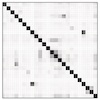 Unveiling the proteome-wide autoreactome enables enhanced evaluation of emerging CAR T cell therapies in autoimmunity
Unveiling the proteome-wide autoreactome enables enhanced evaluation of emerging CAR T cell therapies in autoimmunityAaron Bodansky, David Jl Yu, Alysa Rallistan, Muge Kalaycioglu, Jim Boonyaratanakornkit, Damian J Green, Jordan Gauthier, Cameron J Turtle, Kelsey Zorn, Brian O'Donovan, Caleigh Mandel-Brehm, James Asaki, Hannah Kortbawi, Andrew F Kung, Elze Rackaityte, Chung-Yu Wang, Aditi Saxena, Kimberly de Dios, Gianvito Masi, Richard J Nowak, Kevin C O'Connor, Hao Li, Valentina E Diaz, Rowan Saloner, Kaitlin B Casaletto, Eva Q Gontrum, Brandon Chan, Joel H Kramer, Michael R Wilson, Paul J Utz, Joshua A Hill, Shaun W Jackson,Mark S Anderson, Joseph L DeRisi
J Clin Invest 2024Abstract: Given the global surge in autoimmune diseases, it is critical to evaluate emerging therapeutic interventions. Despite numerous new targeted immunomodulatory therapies, comprehensive approaches to apply and evaluate the effects of these treatments longitudinally are lacking. Here, we leveraged advances in programmable-phage immunoprecipitation methodology to explore the modulation, or lack thereof, of autoantibody profiles, proteome-wide, in both health and disease. Using a custom set of over 730,000 human-derived peptides, we demonstrated that each individual, regardless of disease state, possesses a distinct and complex constellation of autoreactive antibodies. For each individual, the set of resulting autoreactivites constituted a unique immunological fingerprint, or autoreactome, that was remarkably stable over years. Using the autoreactome as a primary output, we evaluated the relative effectiveness of various immunomodulatory therapies in altering autoantibody repertoires. We found that therapies targeting B cell maturation antigen BCMA profoundly altered an individual's autoreactome, while anti-CD19 and anti-CD20 therapies had minimal effects. These data both confirm that the autoreactome comprises autoantibodies secreted by plasma cells and strongly suggest that BCMA or other plasma cell-targeting therapies may be highly effective in treating currently refractory autoantibody-mediated diseases.
